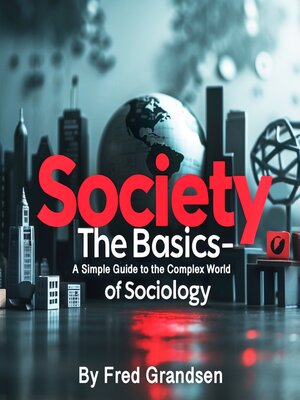Society
audiobook (Unabridged) ∣ The Basics: A Simple Guide to the Complex World of Sociology
By Fred Grandsen

Sign up to save your library
With an OverDrive account, you can save your favorite libraries for at-a-glance information about availability. Find out more about OverDrive accounts.
Find this title in Libby, the library reading app by OverDrive.



Search for a digital library with this title
Title found at these libraries:
| Library Name | Distance |
|---|---|
| Loading... |
Sociology is the systematic study of society, human behavior, and social interactions. It explores how individuals relate to one another and how social structures, such as institutions, norms, and values, shape these interactions. The origins of sociology can be traced back to the early 19th century when scholars began to analyze the effects of rapid social changes brought about by industrialization, urbanization, and political revolutions. Auguste Comte, a French philosopher, is often credited with founding sociology and introducing the idea that societies evolve through distinct stages of development, which he described as the theological, metaphysical, and scientific stages. Comte emphasized the importance of using scientific methods to study society, laying the groundwork for the discipline's emergence as a formal field of study.
Sociology seeks to understand the underlying patterns and structures that govern social life. It examines topics such as social roles, institutions, class structures, race, gender, and family dynamics. Sociologists use various methods to study society, including surveys, interviews, participant observation, and statistical analysis. These methods allow them to identify trends, uncover social inequalities, and explain how social change occurs. For example, Emile Durkheim, one of the early pioneers of sociology, studied the causes of suicide and concluded that social integration and regulation significantly influence individuals' behavior. His work demonstrated that even personal actions have social underpinnings, highlighting the importance of understanding the broader social context.







